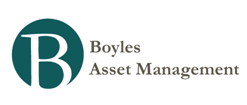Business Insider Interview with Chris Anderson
Prior to joining Wired as its Editor-in-Chief, Chris Anderson swore to himself that he would never become a journalist. Why? Because his parents were also journalists.
So he went and got a degree in physics and a job at Los Alamos.
In the end, his lineage won out and he ended up working for the journals Nature and Science before moving on to The Economist. Then, in 2000, Chris Anderson was recruited by Conde Nast to run its technology magazine Wired. Anderson's reign at Wired started off shaky, but he notes that in retrospect, the end of the dot com bubble was the best time for him to take over the magazine.
"I was able to screw up because in those days you could not succeed in that environment," Anderson told us. "So, if you're going to fail, fail in an environment where it's impossible to succeed."
Anderson made a bet that the Internet would continue to grow despite the stock market crashing, and time and time again he had his magazine declare the Internet had become ubiquitous. No one believed this positive spin however; so, the magazine had to do something different.
"Eventually, it was science that saved us," Anderson declared.
With 18 months of experience under his belt as Wired's Editor-in-Chief, Anderson released an issue of the magazine that strayed away from technology and focused on the cultural differences between science and religion. This issue served as the launching pad for Wired's longstanding dominance in the technology magazine industry.
Today, Chris Anderson is still Editor-in-Chief of Wired, a best-selling author, and the founder of a robot-manufacturing company. And he has 5 kids.
Our exclusive 40-minute interview with Chris Anderson in presented in its entirety below. We'll also publish highlights from it over the next few days.
- Chris Anderson On Econtalk
Chris Anderson, author of Makers: The New Industrial Revolution, talks with EconTalk host Russ Roberts about his new book--the story of how technology is transforming the manufacturing business. Anderson argues that the plummeting prices of 3D printers...
- Chris Anderson On Why He's Leaving Digital For Diy
Found via Simoleon Sense. Wired's long-time editor in chief, Chris Anderson, announced on Friday that he was leaving the magazine to become CEO of his DIY-drone company, 3D Robotics. This move comes a month after the release of his latest book, Makers:...
- The Man Who Makes The Future: Wired Icon Marc Andreessen
Found via The Big Picture. He’s not a household name like Gates, Jobs, or Zuckerberg. His face isn’t known to millions. But during his remarkable 20-year career, no one has done more than Marc Andreessen to change the way we communicate. At 22, he...
- Malcolm Gladwell's Critical Review Of Free And Chris Anderson's Response
I'm a fan of both Malcolm Gladwell and Chris Anderson, so this exchange is pretty interesting to me. Links to: Gladwell's Review Anderson's Response .................... Book: Free: The Future of a Radical Price Related previous post: Chris...
- Upfront And Unscripted With Jeff Bezos (audio)
I think Jeff Bezos and Chris Anderson are two of the best people from which to learn. I don't know how I missed this podcast the first time, but it is really great (in my opinion). I also think the iPod-like comparison is a valid one for The Kindle....

